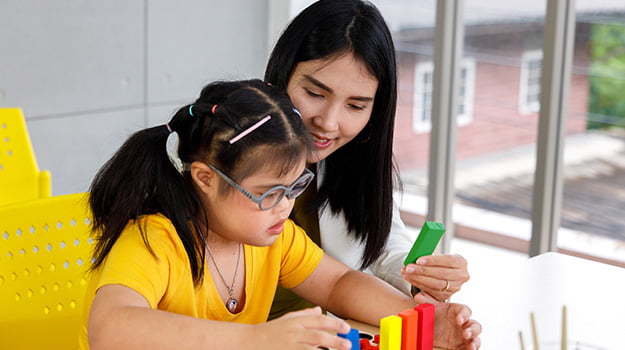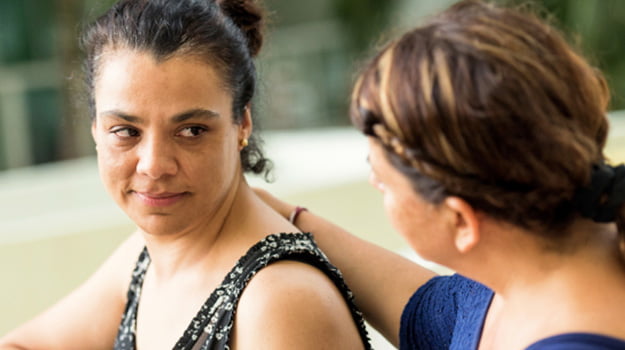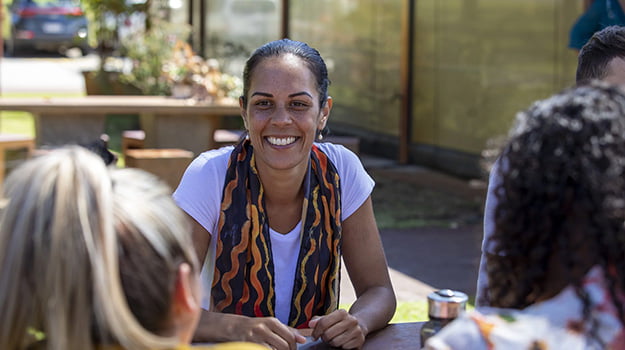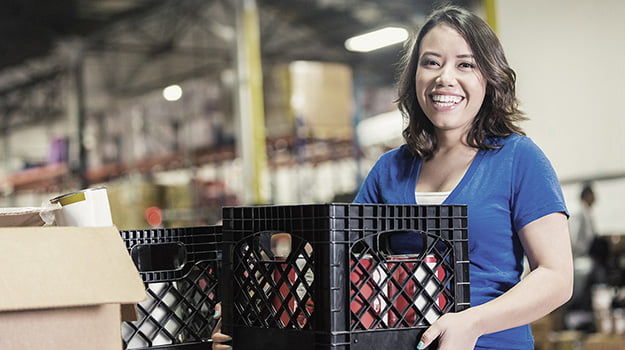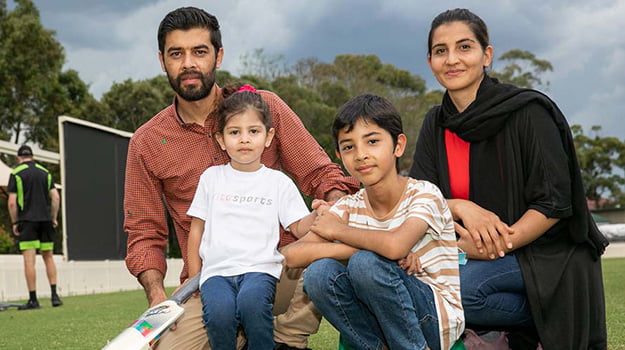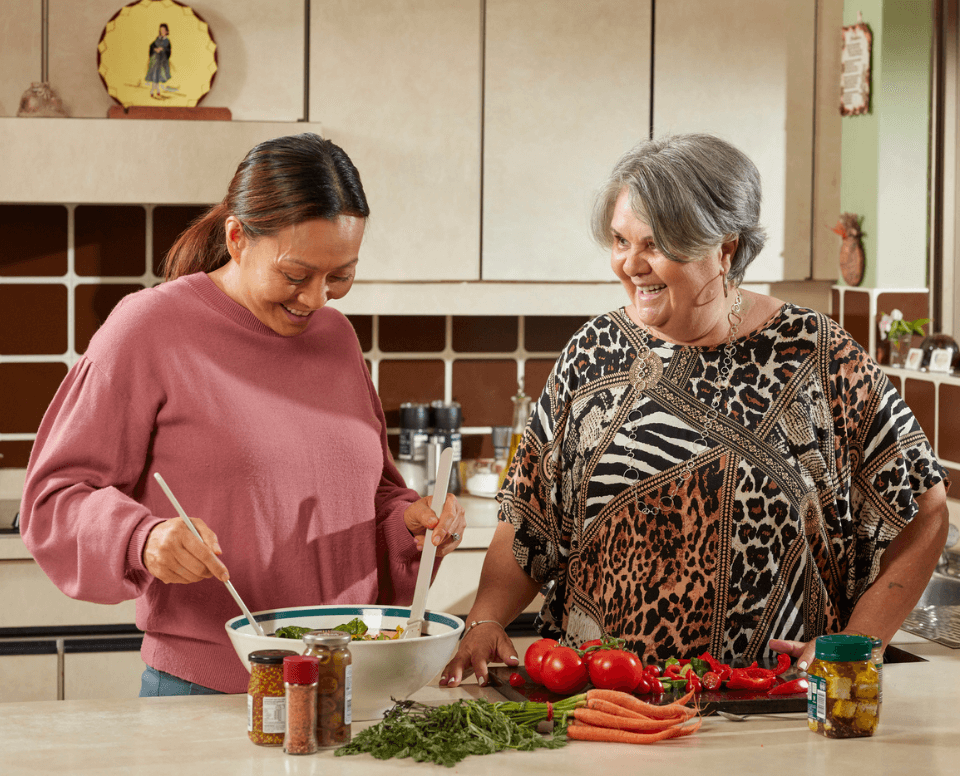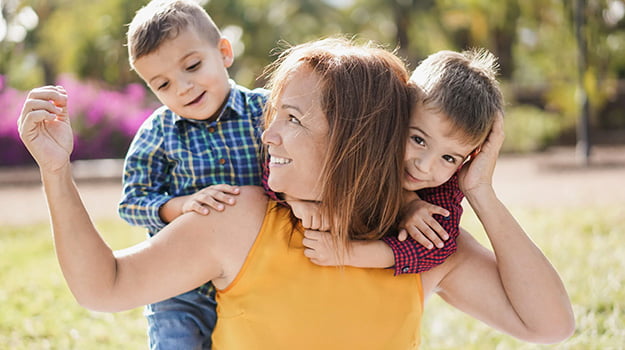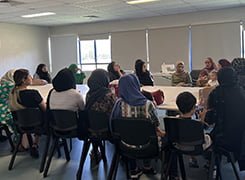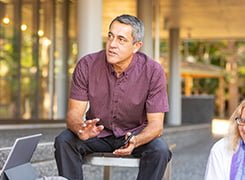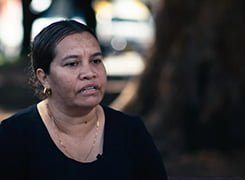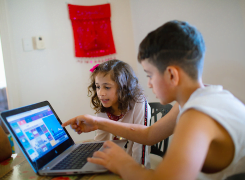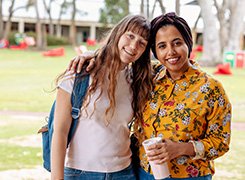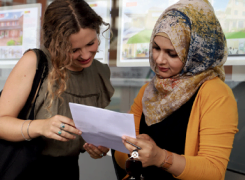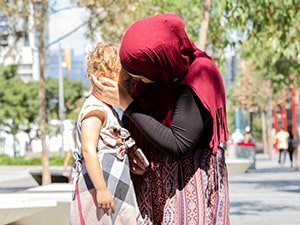The importance of maintaining a child’s connection to their cultural heritage, language and religion while in foster care should not be underestimated. During NSW Foster Care week, September 14-21, Manager of Multicultural Foster Care Service (MFCS) Mr Ghassan Noujaim, hopes to highlight the important work of the services’ foster carers in helping maintain cultural connections. “Our foster carers are incredible in their dedication to, and support for, keeping cultural links for their foster children,” said Mr Noujaim.
Most of them had never played soccer on grass fields with marked lines before, but in their first season in Australia this special team proved themselves champions. After a thrilling 2-1 win, the Newington Gunners Soccer Club’s team of refugees and asylum seekers won its Grand Final on Saturday, September 13. The players had come from Pakistan, Afghanistan, Iraq, Iran, Sierra Leone, Turkey, Nepal and Tajikistan to enjoy safer, better lives in Australia. Many of them are supported by not-for-profit organisation Settlement Services International’s (SSI) humanitarian settlement programs. SSI CEO Violet Roumeliotis said watching them play this season had been inspiring. “Knowing just a little about the circumstances these individuals have come from has made watching them enjoy themselves on the soccer field this year an inspiring experience,” Ms Roumeliotis said. “It has been heartwarming to see them put traumatic life experiences in the background while they enjoy the sport they love and make new friends in the community, just like many other Australians enjoy doing. They are another inspiring example of how people who come to Australia as refugees or to apply for refugee status as asylum seekers can, and want, to participate in our communities.
They have escaped crises and horrors around the world to find some peace of mind on soccer fields in western Sydney. Now, seven months after a generous community campaign helped them join a Sydney soccer club, this team of refugees and asylum seekers will challenge for a championship.
Settlement Services International (SSI) is pleased to announce that it has been awarded the tender to deliver Status Resolution Support Services in NSW and ACT. The Department of Immigration and Border Protection (DIBP) has worked with stakeholders over the past 18 months to bring four existing support programs for asylum seekers together into a single program to deliver support services to clients while their immigration status is being resolved. The resulting program is known as Status Resolution Support Services (SRSS)
SSI’s third Speakers’ Series event for 2014 explored the theme: Perception is reality: How do we form our perceptions of refugees and asylum seekers? SSI CEO Violet Roumeliotis explained the significance of the theme. “In recent years we have seen a hardening of views, particularly towards asylum seekers, and the existence of these negative views has resulted in refugees and asylum seekers experienceing discrimination, isolation and not feeling safe in their communities,” Ms Roumeliotis said. “So SSI is committed to understanding public opinion and undertaking initiatives to influence and to try to change negative perceptions. To address these negative perceptions we need to understand how they are formed: to what extent are these negative views shaped by political discourse, media or by our own values as Australians?” The panel: Chris Rau, Superintendent Mark Wright, Professor Andrew Markus and Oliver Laughland.
Young people seeking asylum in Australia are in need of many essential items but the gift of free sports shoes and boots will provide something vital for all youth – fun. On August 30, 50 young people living in Sydney on bridging visas will get that gift when the Asylum Sneakers campaign promoted by Welcome to Australia and soccer commentator Les Murray hits town. Leila Druery from the non-profit organisation Welcome to Australia said the campaign idea grew from seeing the affect sport could have. “Asylum Sneakers came about after seeing the incredibly positive impact of sport on young asylum seeker children in detention centres and in the community,” she said. “Sadly, many children’s participation in sport is limited by not being able to afford shoes and sports equipment.” Settlement Services International (SSI) is a leading not-for-profit organisation that provides a range of services in the areas of humanitarian settlement, asylum seeker assistance, accommodation, foster care and disability support in NSW. The young recipients are all from SSI’s Community Support program.
This week marks the second anniversary of Settlement Services International (SSI) delivering support programs to asylum seekers in NSW. From about 15 staff supporting 75 clients in 2012, SSI now has 160 staff members. Manager Humanitarian Services David Keegan said it was a testament to staff and team leaders that the organisation had successfully and efficiently negotiated the large growth in such a short timeframe.
A short film, which premiere’s today, explores the real life experience of homelessness faced by refugee youth living without their families in Sydney. ‘Broken Time’ is the story of Ali, an Unaccompanied Humanitarian Minor (UHM), who falls back on his survival instinct when he finds himself homeless on the streets of Sydney. Developed by Settlement Services International (SSI), which provides services to humanitarian entrants, with funding from The Australia Council for the Arts, the film will be launches today in Bankstown, to coincide with International Youth Day. Dilber Hussain played the role of Ali, and was all too familiar with the experience of his character in the film. Dilber is from Pakistan and arrived in Australia in 2012 as a UHM at the tender age of 17. When his circumstances rapidly deteriorated and he was faced with homelessness, Dilber said he was frightened. “Staying in a different place every night, and with strangers, it was hard,” said Dilber. “I didn’t know how to get help, and I feel very lonely here without my family.”
A short film, which premiere’s today, explores the real life experience of homelessness faced by refugee youth living without their families in Sydney. ‘Broken Time’ is the story of Ali, an Unaccompanied Humanitarian Minor (UHM), who falls back on his survival instinct when he finds himself homeless on the streets of Sydney. Developed by Settlement Services International (SSI), which provides services to humanitarian entrants, with funding from The Australia Council for the Arts, the film will be launches today in Bankstown, to coincide with International Youth Day. Dilber Hussain played the role of Ali, and was all too familiar with the experience of his character in the film. Dilber is from Pakistan and arrived in Australia in 2012 as a UHM at the tender age of 17. When his circumstances rapidly deteriorated and he was faced with homelessness, Dilber said he was frightened.
Settlement Services International’s (SSI) third Speakers’ Series event for 2014 will explore the theme: Perception is reality: How do we form our perceptions of refugees and asylum seekers? The live panel discussion will approach the complex question from different angles following a presentation by Professor Andrew Markus, who heads the Scanlon Foundation’s Mapping Social Cohesion research program based at Monash University. The 2014 Mapping Social Cohesion report suggested that the majority of Australians support a humanitarian settlement program, which assesses refugees overseas but are negative towards asylum seekers arriving by boat. The predominant view is that asylum seekers are illegal economic migrants. Claims of persecution are often ignored as a push factor. These views have increased since 2011.
Nothing brings people together like food. So, after 30 days of daylight fasting, the Eid al-Fitr holiday to celebrate the end of Ramadan is the ultimate unifying feast. SSI’s Community Kitchen Eid event brought together asylum seeker clients to enjoy delicious food while reflecting on the experience of practicing Islam in Australia. Tuxedo-clad toddlers with tambourines ran around the Auburn Centre for Community among about 200 SSI Community Support Program clients, who are asylum seekers living in the community on temporary visas while their refugee status is being assessed. On the lawn, clients set up cricket games, using double-stacked milk crates as wickets; others kicked soccer balls with the kids, and people inside played boardgames.
Mohamadreza Ashori, 30, dreamt of competing at the Olympic Games, and still holds on to those hopes despite setbacks throughout his life. In May he won the 74 kilogram division at the Australia Cup of Wrestling. He would have qualified for the Commonwealth Games earlier in the year after success in other events, but he is not an Australian citizen. Mohamadreza is seeking refugee protection in Australia and has lived in the community for about 12 months while his application is assessed. That means he is not eligible to compete in the Games. He has been supported by Settlement Services International’s (SSI) Community Support Program during that time.
Mahdia, 18, could not attend school in Iran because of social and financial barriers. But since she arrived in Australia with her mother and brothers, she has thrown herself into school work with vigour. “I really, really love going to school,” Mahdia said, “because I had so many barriers in the country where I came from. I love my school, I love my teachers and subjects and I love to study. I like to go to the library to study whenever I can and if I don’t, I feel like I have missed out on something.” Mahdia was born in Iran, where her family had fled to from war-torn Afghanistan. Attending school in Iran was all but impossible, she said, because of her gender and ethnicity. “But I studied by myself and went to an institute to study English,” Mahdia said. “Then we came here to Australia. We were so broken. We had a lot of issues but we did it.”
Each person asked about Ramadan is sure to describe its meaning in their own considered, subjective terms. Jawad Hussain described what Ramadan meant to him, as about 120 SSI Community Support Program (CSP) clients broke their daily fast at a Community Kitchen Iftar meal. “Ramadan means to fast, but not only from food; (it’s to fast) with eyes, with mind; we have to be good person,” he said. “It means to be really nice, gentle man. You make a special effort. If you practise Ramadan, you believe it will bring some change in your personality.” Jawad came to Australia from Pakistan and, like most people at the Iftar, is awaiting assessment for refugee status. He is a regular at Community Kitchens who volunteers to prepare food and set up and tidy the community centre.
Australia has a long and proud history of resettling some of the most vulnerable refugee women and their families, however, major gaps in support services for these women have been identified and need to be addressed. Speaking today in Sydney at the Refugee Women at Risk forum hosted by Settlement Service International (SSI), SSI Manager Humanitarian Services David Keegan said that based on consultations with refugee women, it’s clear the current level of support should be reviewed. “Research conducted by the UNSW Centre for Refugee Research suggests refugee women in Australia under the Woman Risk visa category experience higher levels of post-traumatic stress and face greater challenges on resettlement,” he said. As the largest provider of services to refugee women in NSW, SSI has observed that a significant number of refugee women who enter via other visa classes have also suffered extreme physical and sexual violence and trauma prior to their arrival and require higher level specialist support services during settlement in Australia. “SSI currently supports about 1000 vulnerable women, and consultations with 50 women have highlighted a greater need for support services, particularly in employment, affordable housing, health and education,” Mr Keegan continued.
The Ability Links program operated by the partnership of Settlement Services International, St Vincent de Paul Society NSW and UnitingCare has officially started today, July 1. The partnership was awarded the tender to deliver Ability Links across 23 local government areas in Sydney Metro North and Metro South and the Southern Region. The Ability Links program contributes to the objectives of the National Disability Insurance Scheme to foster full and active participation of people with disability in their communities.
Yasmi Houmi, 101 years old, from Iraq, has survived the Assyrian Genocide, World Wars I and II, the Iran-Iraq war, US and Allied Forces wars in Iraq, and the Syrian civil war, to arrive safely in Australia. Having endured many conflicts across several countries, Yasmi was accepted as part of Australia’s humanitarian settlement program for refugees and brought to Sydney in January. She now lives with long-time friends in western Sydney and is supported by Settlement Services International’s (SSI) Humanitarian Settlement program. SSI CEO Violet Roumeliotis said Yasmi was a living treasure and her resettlement as a refugee in Australia after a lifetime of struggle is something all Australians would be proud of. “Yasmi has survived too many conflicts for one person,” Ms Roumeliotis said, “but she has still managed to live a fruitful life and remain positive.” Yasmi is just one of the 2.5 million people who have fled Syria to escape the violent civil war, and she is one of 13,750 refugees who will resettle in Australia this year under the Humanitarian settlement program. “The United Nations High Commissioner for Refugees has described the Syrian conflict as the largest humanitarian operation in history, so, as a humanitarian organisation and as Australians, we are proud to support Yasmi and other refugees seeking a safe haven.
Following the success of the SSI client art exhibition at Verge Gallery, “Art is Our Voice” has been invited to feature in Holroyd City Council’s event program during Refugee Week with a selection of works on display at the council’s Foyer Exhibition Space from today, June 18 to June 30, 2014, Monday to Friday, 8:30am to 4pm. The show opens today at 10am and light refreshments will be provided. For more information please contact Council on (02) 9840 9840. Holroyd City Council Foyer Exhibition Space, 16 Memorial Avenue, Merrylands Another selection of works from the “Art is Our Voice” exhibition will be also on show at Sydney TAFE's Limelight Gallery from June 14 to June 30, Monday to Friday 10:30am-6:30pm, Saturday 11:00am-3:00pm. For more information contact: Limelight Gallery on (02) 9217 5173. Limelight Gallery, Sydney TAFE, Building W - Basement, 827-837 George St, Sydney
The Power of Storytelling is the second event of SSI’s Speaker Series Refugee Week 2014 event will discuss the role of storytelling in creating awareness about the refugee and asylum seeker experience. Speakers include award-winning writer Rosie Scott, Sri Lankan-born playwright and theatre director Dhananjaya Karunarathne and SSI client Saleh Khani. Many refugees and asylum seekers have compelling stories to tell and crave to be listened. However many have reasons for wanting to remain quiet, fearing further persecution to their families or in the case of asylum seekers, negative impact on their applications for refugee status.
 Uniting communities to thrive togetherExplore Communities
Uniting communities to thrive togetherExplore Communities Helping you reach your goalsExplore Disability
Helping you reach your goalsExplore Disability Living and breathing diversityExplore Diversity & Inclusion
Living and breathing diversityExplore Diversity & Inclusion Building healthier homesExplore Domestic & Family Violence
Building healthier homesExplore Domestic & Family Violence Pathways for people to reach their full potentialExplore Education & Training
Pathways for people to reach their full potentialExplore Education & Training Growing economic participation in AustraliaExplore Employment
Growing economic participation in AustraliaExplore Employment Nurturing potential and building foundations for brighter futuresExplore Family, Children & Youth
Nurturing potential and building foundations for brighter futuresExplore Family, Children & Youth Supporting holistic well-being for individuals and communitiesExplore Health & Wellbeing
Supporting holistic well-being for individuals and communitiesExplore Health & Wellbeing Supporting newcomers across their settlement journeyExplore Settlement
Supporting newcomers across their settlement journeyExplore Settlement Ethical support and solutions on immigration legal matters.Explore SSI Legal Pty Ltd
Ethical support and solutions on immigration legal matters.Explore SSI Legal Pty Ltd Uniting communities to thrive togetherOur services engage and empower community members, foster collaboration, and promote positive change.Explore CommunitiesServices
Uniting communities to thrive togetherOur services engage and empower community members, foster collaboration, and promote positive change.Explore CommunitiesServices Helping you reach your goalsWe’ll connect you with the support you need to thrive.Explore DisabilityDiversity & Inclusion
Helping you reach your goalsWe’ll connect you with the support you need to thrive.Explore DisabilityDiversity & Inclusion Living and breathing diversityOur language services and diversity training workshops foster meaningful cultural awareness and integration for organisations and individuals.Explore Diversity & InclusionDomestic & Family Violence
Living and breathing diversityOur language services and diversity training workshops foster meaningful cultural awareness and integration for organisations and individuals.Explore Diversity & InclusionDomestic & Family Violence Building healthier homesOur educational and support programs empower adults and young people to identify and take action against abusive behavior.Explore Domestic & Family ViolenceEducation & Training
Building healthier homesOur educational and support programs empower adults and young people to identify and take action against abusive behavior.Explore Domestic & Family ViolenceEducation & Training Pathways for people to reach their full potentialOur programs promote lifelong learning, foster economic opportunities, and enhance overall well-being and potential.Explore Education & TrainingEmployment
Pathways for people to reach their full potentialOur programs promote lifelong learning, foster economic opportunities, and enhance overall well-being and potential.Explore Education & TrainingEmployment Growing economic participation in AustraliaEnhancing the employability of individuals and supporting employers to create a diverse workforce and inclusive culture.Explore EmploymentServices
Growing economic participation in AustraliaEnhancing the employability of individuals and supporting employers to create a diverse workforce and inclusive culture.Explore EmploymentServices Nurturing potential and building foundations for brighter futuresWe deliver a range of programs that help families, children, and youth to thrive and reach their full potential.Explore Family, Children & YouthHealth & Wellbeing
Nurturing potential and building foundations for brighter futuresWe deliver a range of programs that help families, children, and youth to thrive and reach their full potential.Explore Family, Children & YouthHealth & Wellbeing Supporting holistic well-being for individuals and communitiesOur programs educate, empower, and support individuals to lead balanced and fulfilling lives.Explore Health & WellbeingSettlement
Supporting holistic well-being for individuals and communitiesOur programs educate, empower, and support individuals to lead balanced and fulfilling lives.Explore Health & WellbeingSettlement Supporting newcomers across their settlement journeyOur settlement services connect newcomers with resources, knowledge, and skills for personal growth and community integration.Explore SettlementServices
Supporting newcomers across their settlement journeyOur settlement services connect newcomers with resources, knowledge, and skills for personal growth and community integration.Explore SettlementServices Ethical support and solutions on immigration legal matters.A team led by experienced professionals and dedicated support.Explore SSI Legal Pty LtdServicesClose
Ethical support and solutions on immigration legal matters.A team led by experienced professionals and dedicated support.Explore SSI Legal Pty LtdServicesClose
